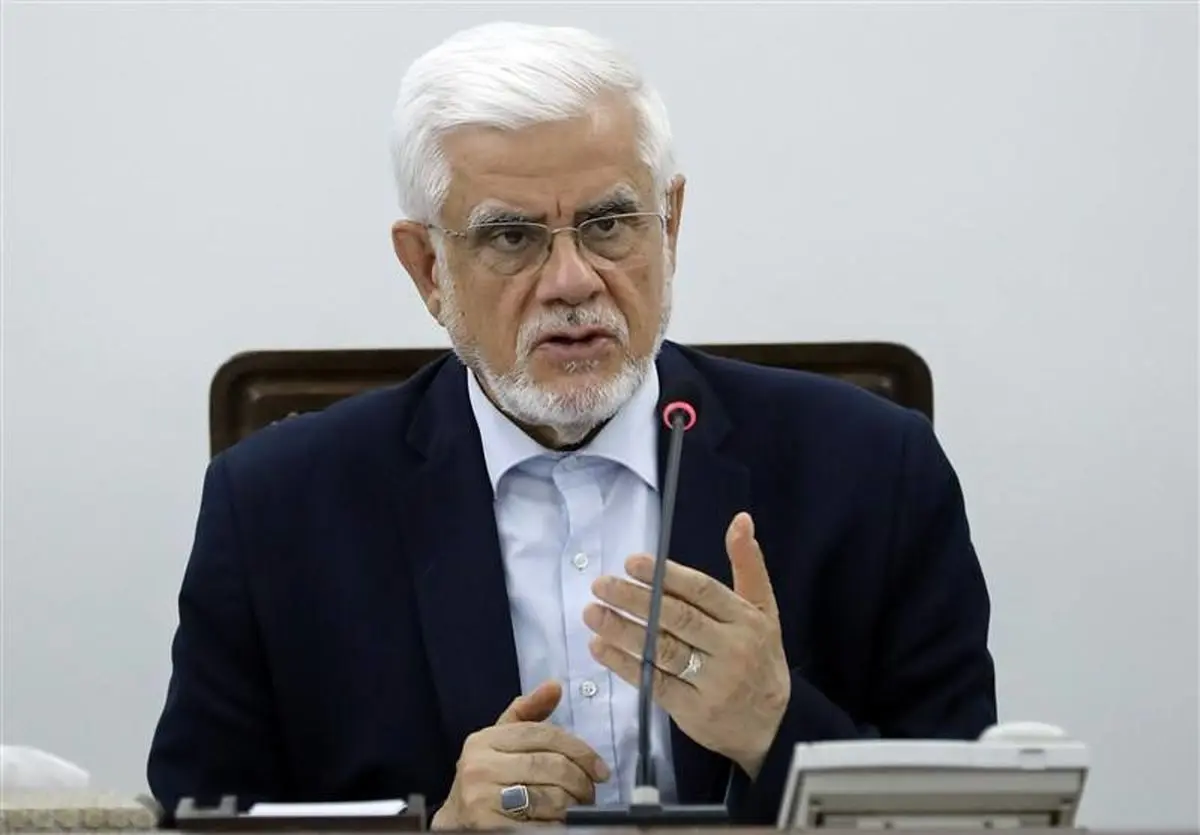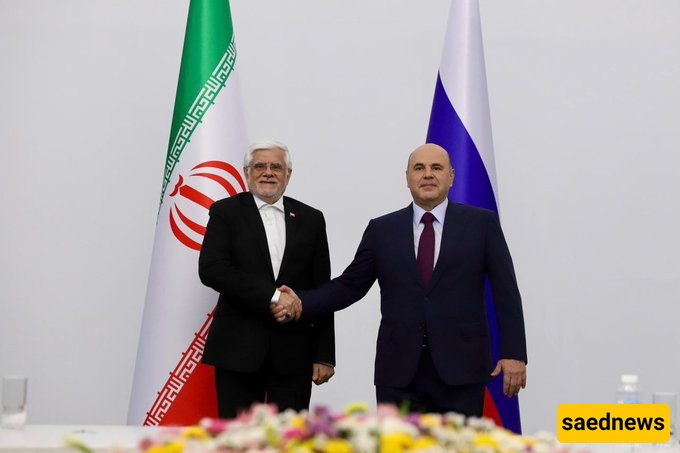SAEDNEWS: Iran’s First Vice President Mohammad Reza Aref met Russian Prime Minister Mikhail Mishustin on the sidelines of the Eurasian Economic Union summit, stressing Tehran’s readiness to expand bilateral, multilateral, and regional cooperation.

Mohammad Reza Aref, Iran’s First Vice President, met this morning local time with Russian Prime Minister Mikhail Mishustin on the sidelines of the Eurasian Economic Union prime ministers’ summit, highlighting the importance of enhancing bilateral relations on regional issues.

Aref reaffirmed that the Islamic Republic of Iran is fully prepared to expand bilateral, multilateral, and regional cooperation with Russia. Referring to Iran’s nuclear negotiations, he noted that Iran has always pursued dialogue and confidence-building regarding its peaceful nuclear activities, but Western countries from the outset turned the nuclear issue into a political project.
According to ISNA, Aref also criticized the stance of certain European states regarding the “snapback” mechanism, stating that from a legal perspective, the three European countries have no right to intervene in this matter. He argued that their proposals essentially endorse the U.S.’s unprincipled positions in the nuclear talks.
He stressed that the Islamic Republic has never sought non-peaceful uses of technology, particularly nuclear technology, while pointing out that Israel, with U.S. support, attacked Iran during indirect negotiations, assassinating prominent academics, military commanders, and civilians without any legitimate justification—at a time when talks, even from Washington’s perspective, were moving toward confidence-building.
The First Vice President condemned Israeli atrocities in Gaza, stating that the regime continues to display inhumane and oppressive behavior, seeking to entrench its occupation while depriving Palestinians of the right to live. He underscored the need for stronger cooperation to prevent such crimes.
Aref stressed that, like Russia, Iran opposes U.S. unilateralism in global affairs, advocating instead for a strategy of multilateralism, regional security, and stability led by regional states themselves. He underlined that resolving regional issues does not require external interference, since countries in the region are capable of addressing their own challenges.
Turning to developments in the Caucasus, Aref emphasized Iran’s support for any agreements or cooperation that could reduce tensions and foster friendly relations among neighboring states. He reiterated Iran’s policy of rejecting foreign interference in the geopolitics of the region, affirming that the Caucasus and Central Asian countries can achieve peace, stability, and security by working together.
He further underlined that the Islamic Republic of Iran is committed to deepening cooperation with Russia across all fields. Current capacities, he noted, exceed existing frameworks, but bureaucratic hurdles have slowed progress. He called for advancing cooperation within the framework of the Comprehensive Strategic Partnership, especially in energy, tourism, transportation, railways, and regional corridors.
Aref urged greater activation of joint commissions, as well as the exchange of scientific and technological achievements between the two countries.
Russian Prime Minister Mikhail Mishustin, for his part, highlighted the remarkable growth of trade and economic cooperation between Iran and Russia in recent years. He pointed out that the free trade agreement between Iran and the Eurasian Economic Union plays a pivotal role in expanding Iran’s relations with regional countries in multiple fields. He underlined the strategic importance of the North–South transport corridor in deepening such ties.
Mishustin also emphasized the importance of sustained diplomatic contacts between the leaders of the two countries and called for expanding cooperation in science, technology, tourism, and the implementation of existing agreements.
Referring to developments in the Caucasus, he stressed that all regional countries must base their relations on the principle of good neighborliness and that, through cooperation, they can build a better future for the region.

